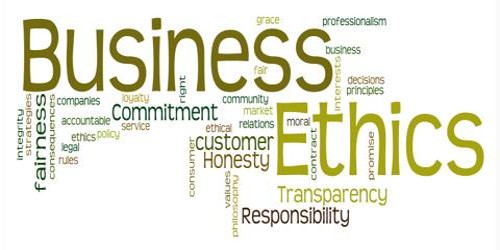Review of employee and management development theories, methods and practices. Evaluation and critique of these in the light of experiences in Nigeria and other African countries. Effects of culture, innovation on training and development.
- Faculty: Abdul Lawal
This course covers various issues on the management of individuals, groups and organizations. It is aimed at increasing the personal effectiveness and skill of participants in understanding, analyzing and managing people in organizations. Introduction to Human Problems in Organizations. The Role of the Manager. Motivation. Group Dynamics. Delegation. Power and Authority. Management Style. Organizational Structure: Strategy and Structure. Organizational Forms: Functional, Divisional, Matrix, Networks. Career Management: Early & Mid-Career. The Dynamics of Taking Charge. Leadership: Theories of Leadership. Leadership Values. Change Management: Drivers of Change. Communicating Change. Implementing Change.
- Faculty: Chantal Epie
The sequence of this course is structured along with the seminar format that will expose the students to progressive theoretical and empirical developments on strategy process. This course basically aims to inform students about analysis of strategic decisions facing organisations at the line of business level, however, we will also consider strategy at the corporate level. The course is informed by both economic and behavioral views of strategy. The course will cover traditional strategy topics such as industry analysis and attractiveness of industries, building core competencies and competitive advantage, generic strategies and modern game theory models of competition. A central integrating idea is anticipating the response of other actors in the industry and recognizing that often an organization’s profits depend on the actions of other firms. To cover a broad array of issues in strategy research, the readings are biased towards foundational and survey works, although most sessions include at least one empirical or modeling paper that exemplifies work that is done near the knowledge frontier.
- Faculty: Olamitunji Dakare
Marketing Planning. Marketing Implementation. Marketing Department Organization. Marketing Control. Product/Brand Management. Personal Selling. Sales Management. Trade Marketing.
- Faculty: T Otubanjo
Discussion and articulation of recent developments in the accounting literature.
- Faculty: Akintola Owolabi
Market efficiency tests, term structure theory tests, test of asset pricing models, tests of divided policy and financial structure issues. Topic focus on statistical and methodological problems encountered in empirical research in related areas of finance, economics etc.
- Faculty: Onafowokan Oluyombo
The main thrust of this course is to expose students to the dynamics of the business ethics literature focusing on the different business ethics theories and fundamentals and their applications to both domestic and global ethical issues in business management. Some of the core areas of coverage amongst others are theories of values, corporate governance, corporate social responsibility, responsibilities of the firm to each of its main stakeholders, Corporation's ethical status and values as well as financial transaction ethics.

- Faculty: Prof. Juan Elegido
The purpose of the course is to develop basic competence and judgment in using quantitative techniques to solve and analyse decision problems in business fields. This course takes an in-depth look at the practices in quantitative methods for business research. The course is designed to enable students understand use of descriptive statistical tools for establishing normality, variable independence and linearity. Different methods of research instrument reliability and validity will be carried out.
The course promises to expose students to data coding and exploratory analysis in checking for errors. The course will dig deep into various classifications of research variables and their implications for choice of data analysis. Different forms of research questions (descriptive, associational and difference) will be examined with their relevant data analysis techniques. The students will be exposed to all forms of parametric statistics and non-parametric statistics used in data analysis.

- Faculty: Olalekan Aworinde
- Faculty: Perekunah Eregha
- Faculty: Olusegun Vincent
Continuation of 1st Semester MGT 911

- Faculty: Perekunah Eregha
- Faculty: Oluwasola Oni
- Faculty: Olusegun Vincent